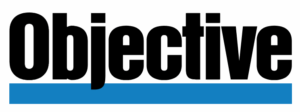The Australian government has embarked on a substantial reform, to mandate corporate climate reporting. The objective is clear: to ensure that businesses and financial institutions disclose material climate risks and opportunities transparently, aligning with global standards and meeting investor expectations.
“As I’ve said before, building a net-zero economy – and building it in a way that delivers prosperity and security and all the other things we value – is in many ways the defining challenge for our country. That’s the rationale underpinning the major reform we’re undertaking of mandating corporate climate reporting in Australia – And our broader sustainable finance agenda,” Australian Treasurer, Jim Chalmers.
The Role of Digital Reporting
To make these disclosure obligations truly effective, information must be easily accessible, comprehensible, and usable, rather than hidden in cumbersome PDFs. The introduction of digital reporting is seen as a pivotal step in the Treasurers’ reform. While Australia has allowed digital financial reports since around 2010, its adoption hasn’t matched expectations. The Treasurer’s message acknowledges the need for concerted efforts to promote digital reporting and its potential benefits, from enhancing productivity for companies, regulators, and auditors to attracting overseas investors by making Australian businesses more visible. Moreover, digital reporting has the potential to address broader business risks, including environmental, social, and governance concerns.
In a recent report published by Deloitte “Embracing the power of digital corporate reporting: A mandate for change,” emphasised the need for Australia to shift to digital reporting through formats like XBRL. This transition would enhance the reliability, transparency, and efficiency of ESG data. They recommend integrating International Sustainability Standards Board (ISSB) reporting standards into Australian accounting standards and designing them to be digital to drive consistency and accessibility in decision-making data for the broader financial ecosystem.
The Path Forward for Climate-Related Disclosure
Andy Moy, Vice President of Objective Keystone, views climate-related disclosure as akin to the journey of the DDO (Design and Distribution Obligations) legislation – a rapidly evolving landscape transitioning from aspiration to policy and finally, obligation and penalties. While financial services companies acknowledge the global imperative for change and their role in it, they need clear guidance on meeting climate-related disclosure obligations. And we are close to that.
As climate-related financial reporting requirements advance to the Exposure Draft ED SR1 legislation phase, the AASB (Australian Accounting Standards Board) will consult on climate disclosure standards and open for comment until the 1st of March 2024. The ED SR1 includes three draft Australian Sustainability Reporting Standards which provide a framework and guidance for financial reporting. Just as the DDO legislation led to more granular and specific disclosure reporting requirements, the evolution of climate-related disclosure underscores the increasing importance of environmental, social, and governance factors in shaping investment strategies and risk assessments.
“And that’s where Objective Keystone, our software, comes in. Keystone is an authoring and compliance tool for the preparation, sign-off, publishing, and submission of regulated documents and data,” says Mr. Moy.
In pursuit of clarity and compliance, financial institutions are turning to trusted tools like Objective Keystone. Keystone isn’t merely software; it’s a solution designed to streamline the entire process of preparing, reviewing, publishing, and submitting regulated information. In an environment where disclosure requirements are growing more intricate, Keystone offers a dependable means for financial institutions to meet their obligations efficiently.
“Climate-Related Disclosure is just another form of that, that we know that we’ll need to be able to help organisations meet in the future, Keystone will be used to prepare those statements and meet those obligations,” says Mr. Moy.
Embracing a Sustainable Future
In conclusion, the landscape of climate-related disclosure in Australia is swiftly evolving from a mere aspiration to a regulatory obligation. Financial services companies are actively seeking guidance on how to navigate this complex terrain, and solutions like Objective Keystone are poised to be invaluable assets in this journey. As disclosure requirements become more specific and demanding, financial institutions can rely on these tools to streamline their compliance processes.
Start your Climate-Related Disclosure Journey.












